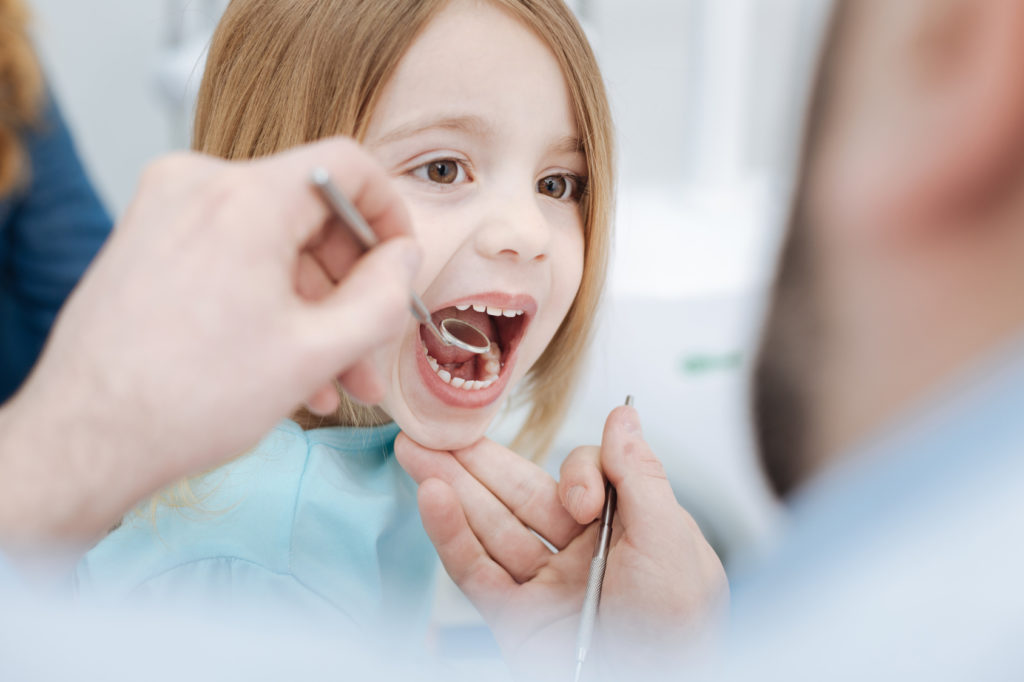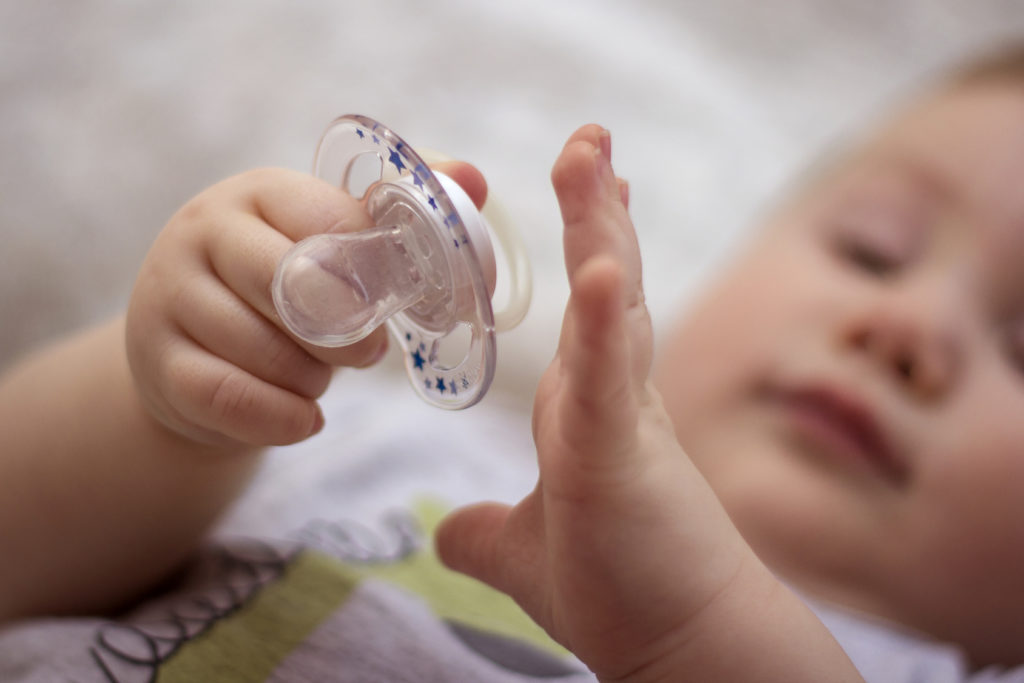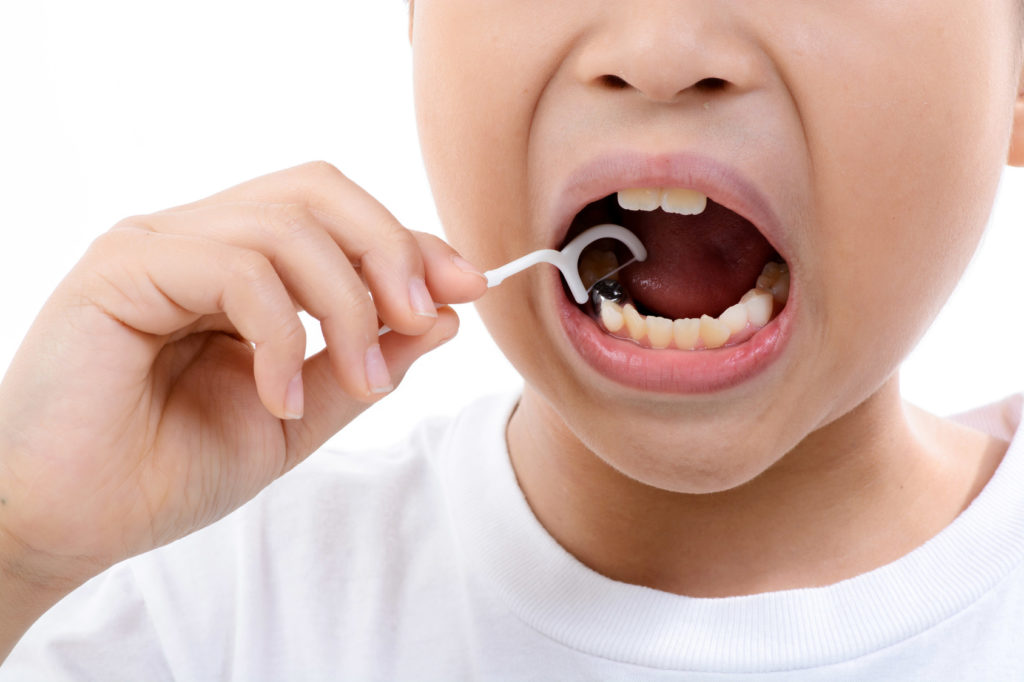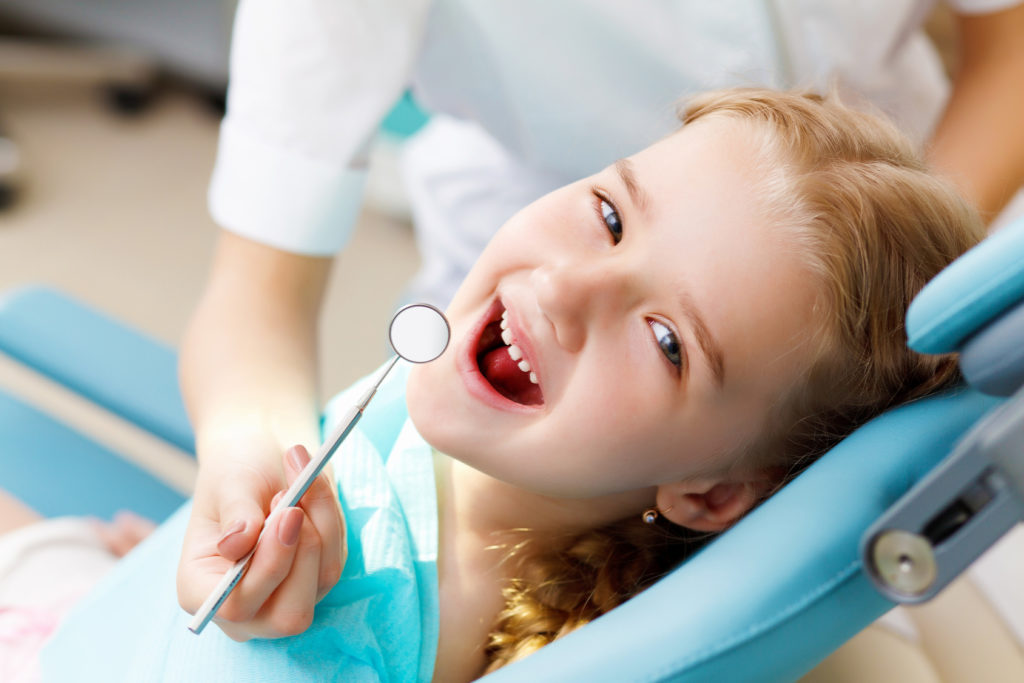Many of us don’t give too much thought to our bite patterns, especially if we were lucky enough to have good dental genes that have been passed down from our parents. However, some of us were the kids who had to have more than one round of braces and even the dreaded headgear that came along with extensive bite issues that we developed as children. Since the 1990s, orthodontics have greatly advanced, but no parent wants their child to experience the pain and discomfort that can come with bite issues and extensive braces, expanders, and other mechanisms that are used to correct irregular bite patterns. While it’s not always possible to prevent bite misalignment, there are steps to take to ensure you are monitoring your child’s jaw and bite development as they are growing in order to take action early on, if it’s needed.
Help Your Child Develop Good Oral Habits
Parenting can sometimes feel like a never-ending uphill battle, especially when you are trying to guide young developing minds to become self-sufficient little humans who can take care of their own teeth. Sometimes kids will rebel, or they don’t understand the importance of brushing their teeth before bed after a day of snacking and drinking fruit juice. Trying to appeal to toddlers rationally with explanations doesn’t always seem to do the trick, so what else does a parent have in their arsenal? Lead by example. Children are like little sponges that observe and often imitate things they see. If your child sees you taking good care of your teeth, it’s the first and most important step in helping them develop good oral habits, but it certainly doesn’t end there. There are several other tips and tricks to keep in mind when raising your kids and teaching them good oral hygiene.
How to Eliminate Your Child’s Bad Breath
Starting your child off with proper oral hygiene early on is vital, but you may run into bumps along the way. Brushing at least twice a day is standard and healthy for developing teeth, but sometimes bad breath can happen for a multitude of reasons that aren’t always directly related to brushing. There are other health issues that may be at play here so bad breath is not something you want to dismiss lightly. Make sure you are aware of your kid’s bad breath and take action early on if you notice it to be a persistent problem once you’ve ruled out that poor brushing may be the culprit.
How to Help Your Baby through the Teething Process
When baby teeth start to form it can be a painful and stressful process for a child who is unable to articulate what they’re feeling. This is often accompanied by crying fits, understandable crankiness, and major stress on parents who do not enjoy seeing their children suffer. For centuries, there have been holistic methods to deal with teething infants that have been passed down from generation to generation, and some people swear by them. However, dentists prefer to use science-backed information on how to help your teething baby while they are developing.
When Should You Take Away Your Child’s Pacifier?
Your child’s pacifier is one of their first best friends in the world; they can offer comfort, interaction, communication and help reduce stress, just like any best friend would. There does come a time, though, when it’s important to consider reducing your child’s exposure to their pacifier or binky because it can begin posing serious issues when it comes to the alignment of their jaws, mouth, and teeth.
When Should You Start Flossing Your Child’s Teeth?
Once your toddler begins to grow their first baby teeth, it’s an exciting time with lots of changes and challenges ahead. It’s recommended to begin caring for their teeth even before these first few adult teeth begin to grow. Preparing your infant for oral hygiene is a great first step, and their progress, along with your guidance, will help set your child up for healthy teeth and gums in the future.
How to Prevent Childhood Cavities
Getting your child started on the right track to optimal oral hygiene can be one of the greatest things you can do for them. Teaching them proper brushing and flossing habits at toddler age can prevent your child from having major, potentially painful, issues in the future. Although 100% preventable, tooth decay is one of the most common of childhood diseases. While checkups and cleanings are an essential part of overall health, about 20% of childhood cavities go untreated, according to the CDC (Centers for Disease Control and Prevention). With the help of your pediatric dentist, you can come up with a good plan to ensure your child’s dental hygiene is exactly where it should be, from infancy into adulthood.
How to Keep Tooth Enamel Strong
You hear a lot about tooth enamel in commercials and at your dentist’s office but what is it? The outer surface of our teeth is referred to as enamel. It’s the hardest and most mineralized substance in the human body. Because it’s translucent, the color can range from off-white to slightly yellow and is partially responsible for the color of your teeth. Enamel has many jobs, but most importantly, it helps protect our teeth from decay, or more commonly known as, cavities. It serves as a barrier between the inner layers of your teeth and the foods and drinks with which they come into contact. For these reasons and more, it’s important that we protect our tooth enamel, as it cannot be replaced once it is damaged or eroded because it does not contain any living cells, unlike our bones.
5 Best Snacks for Healthy Teeth
Everything your kids eat can impact the health of their smiles, even down to those quick snacks we choose to give them in a pinch. The good news is there are some snacks out there that can actually help their teeth and prevent future decay or cavities. According to the ADA, there is a correlation between the foods we eat and overall mouth health. While some foods are better than others, making good choices to help maintain healthy teeth will be easy with the incorporation of these tasty treats.
How Medications Can Affect Your Child’s Dental Health
If your child is sick, their pediatrician may prescribe medicine to alleviate symptoms or knock out a bacterial infection. There will likely be information available as to possible side effects or interactions with other drugs, but there might not be any information about potential effects of that medication on their dental health. In this article, we take a brief look at the most commonly prescribed medications for children, and how these medications can affect your child’s dental health.
 Directions
Directions







